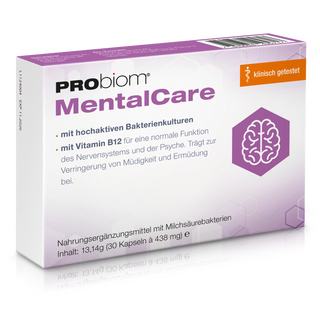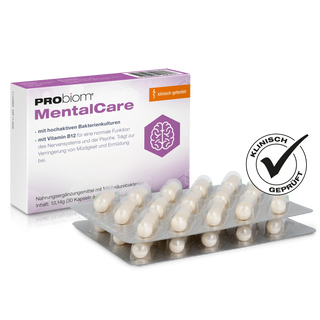Oatmeal is considered a true superfood: It's nutrient-rich, versatile, filling—and truly delicious. Those interested in healthy eating often encounter the question of whether oatmeal is also a probiotic , or at least has a similar effect. In this article, we take a closer look: Are oatmeal probiotics? Or do they play another important role in gut health?
What are probiotics anyway?
Before we clarify the role of oatmeal, we should understand what probiotics actually are.
Probiotics are living microorganisms—usually bacteria or yeasts—that, in sufficient quantities, have health benefits for humans, particularly for the intestinal flora. They can be found, for example, in:
-
Yogurt with live cultures
-
kefir
-
Sauerkraut (raw, unpasteurized)
-
Kimchi
-
Kombucha
-
Food supplements with specific probiotic strains
Probiotics act directly in the intestine by influencing the composition of the intestinal flora, displacing pathogenic germs and stimulating positive metabolic processes.
The short answer: No, oatmeal is not probiotic
Oat flakes do not contain any living microorganisms and are therefore not probiotics by definition . They also do not contain any fermented ingredients—unless they have been deliberately fermented (e.g., as part of special manufacturing processes, which is rare).
But even though oatmeal itself isn't a probiotic, it still has an important connection to gut health - and that brings us to the next point.
Oatmeal as a prebiotic – the big misunderstanding
Although oat flakes are not probiotics , they are certainly prebiotics .
What is a prebiotic?
Prebiotics are indigestible food components—usually fiber—that serve as food for the "good" gut bacteria . They therefore indirectly promote the growth and activity of probiotic microorganisms in the gut.
Why are oatmeal prebiotic?
Oatmeal contains a special type of fiber, especially:
-
Beta-glucans : These soluble fibers can be fermented in the large intestine and provide energy for beneficial intestinal bacteria.
-
Resistant starch (in cooled porridge or overnight oats): This reaches the large intestine undigested and is used there by bacteria.
Oat flakes can help to have a positive long-term effect on the intestinal flora by “feeding” good bacteria.
Benefits of oatmeal for gut health
1. Supporting good intestinal bacteria
Due to their prebiotic effect, oat flakes promote the growth of beneficial bacteria such as bifidobacteria and lactobacilli – the very species often found in probiotics.
2. Improve digestion
Fiber from oatmeal regulates digestion, can prevent constipation and improve stool quality.
3. Support of the immune system
A healthy intestinal flora also strengthens the immune system – and this is precisely where oatmeal contributes indirectly.
Oatmeal + probiotics = dream team
The combination of probiotics and prebiotics is also called synbiotic . And this is where it gets exciting: If you combine oatmeal (prebiotic) with probiotic foods , you can achieve a particularly positive effect on your gut.
Example of a synbiotic breakfast:
-
Overnight oats with:
-
Natural yogurt or kefir (probiotic)
-
Oat flakes (prebiotic)
-
Berries (antioxidants)
-
Flaxseeds or nuts (healthy fats)
-
This way you support your intestinal flora twice – with live bacteria and with “food” for these bacteria.
Conclusion: Oat flakes are not a probiotic – but still extremely valuable
In summary:
-
No , oat flakes are not probiotics because they do not contain live microorganisms.
-
Yes , they have a prebiotic effect – that is, they naturally promote the growth of healthy intestinal bacteria.
-
In combination with probiotics, they can have a synergistic effect and effectively support intestinal health.
So if you eat oatmeal regularly, you are definitely doing something good for your gut – even if there are no “live bacteria” in it.
Final tip: If you want to particularly benefit from the prebiotic effect, you should occasionally choose overnight oats instead of warm porridge – cooling them down produces more resistant starch, a particularly valuable fiber for your intestinal flora.

















